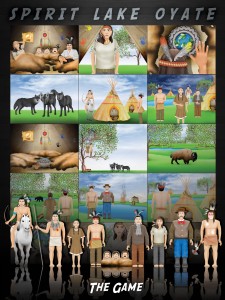Wolfram asks- why teach multiplication?
If you have not listened to the TED talk by Conrad Wolfram, I highly recommend you do. If you have any interest in math education, the odds are great that his talk is far more important than anything else you could possibly doing in the next 20 minutes.
If you think the name sounds familiar, it’s because he is one of the masterminds behind Mathematica.
What is so fascinating about his ideas? In a nutshell, he says that we teach calculation – addition, multiplication, exponentiation, logarithms – as math. That takes up 80% or more of our curriculum because it is not easy for most people to learn, it requires memorization and they don’t want to learn it (so it probably requires more badgering).
We spend a few years in childhood learning “math facts” – subtraction, division, multiplication, addition. We spend a few more in adolescence, if we are “good at math” – learning how to compute sines, tangents, logarithms, derivatives. Then, for the rest of our lives, we almost never do that by hand again.
This change occurred during my lifetime and it was one occasion where it actually benefited me to be poor. I could not afford a calculator in high school, so while all the more affluent kids whipped through their homework using calculators, I had to work it all out. When we took the SATs, unlike now, you were not allowed to use a calculator, so I did much better then they did.
Back then, it made sense. Calculators cost hundreds of dollars and you could not just assume you would always have one handy. As I sit here, there is calculator and several types of statistical and mathematical software on my desktop, laptop and iPad. There are even a couple mathematical apps, and, of course, the ubiquitous calculator, on my cell phone. When there are four devices capable of computation I can reach from where I am sitting it really doesn’t make sense to spend years of teacher and student time insuring that every child knows that 13 x 13 = 169.
One use Wolfram sees for computation is estimation. I wholeheartedly agree with him there. In writing our math education games, the next major update is going to have better analysis of student errors.
You are being attacked by rabid wolves. You’re just a kid, you can only hit a wolf about once every 5 times and 7 wolves are coming at you. How many arrows do you need?
There is an important difference between the student who answers this question with 33 and with 5 or 187. If they repeatedly make that type of error, it is clear that in the first case, they are good at estimation but not so good at computation. That is one reason we give two tries for most answers, and we almost never have multiple choice. We want to distinguish among the student who knows the answer but was in a hurry and didn’t read the problem completely, the student who understood the problem and did not get the calculation exactly right and the student who is completely confused.
I just watched this video for the first time a few days ago, and Spirit Lake: The Game was already out to our testers and ready to be uploaded. However, you’ll see some changes based on these ideas in the update in October, and even more in the new game we are making now.
Seriously, what is the point of learning new ways of thinking about math if you don’t do anything about them?
Your turn.
+++++++++++++++++++++
HOW YOU WISH MATH CLASS HAD BEEN

